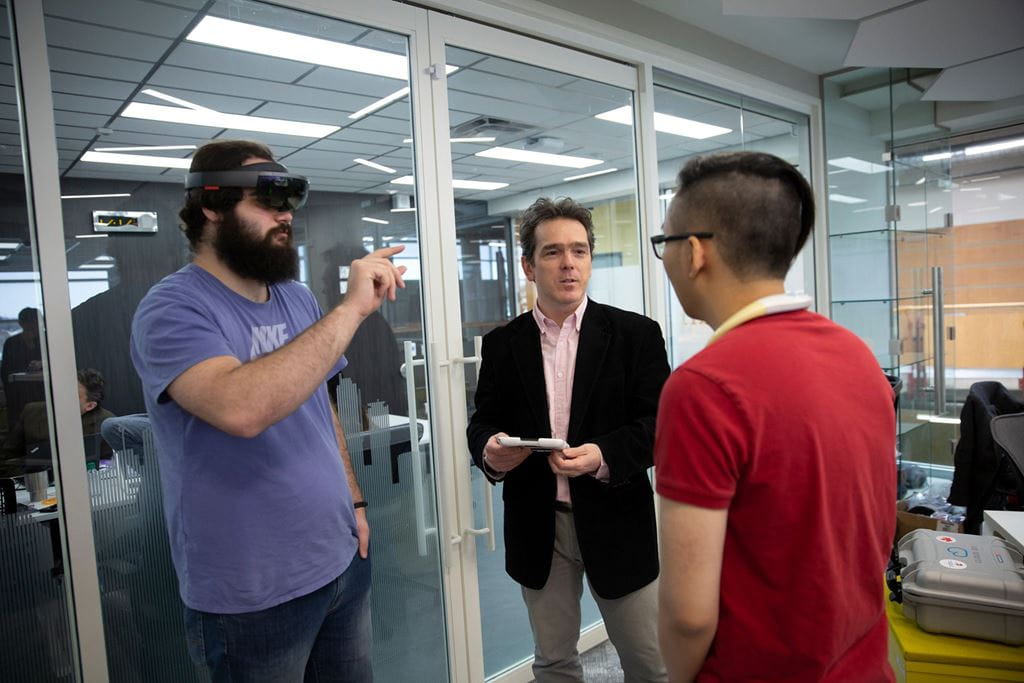
Lubna Badri Mohammed
Biography
 Lubna's academic journey includes receiving her second doctor of philosophy (PhD) in electrical and computer engineering from Toronto Metropolitan University (formerly Ryerson University), Canada, in 2022. Her first PhD in computer engineering was awarded by the University of Technology, Baghdad, Iraq, in 2000. She received a master of science in computer engineering and a bachelor of science in control and systems engineering, both from the University of Technology in Baghdad, Iraq, in 1997 and 1994. Throughout her career, she has held various academic positions, including professor and department chair of the Computer and Communication Engineering department at Al-Zaytoonah University of Jordan and Philadelphia University.
Lubna's academic journey includes receiving her second doctor of philosophy (PhD) in electrical and computer engineering from Toronto Metropolitan University (formerly Ryerson University), Canada, in 2022. Her first PhD in computer engineering was awarded by the University of Technology, Baghdad, Iraq, in 2000. She received a master of science in computer engineering and a bachelor of science in control and systems engineering, both from the University of Technology in Baghdad, Iraq, in 1997 and 1994. Throughout her career, she has held various academic positions, including professor and department chair of the Computer and Communication Engineering department at Al-Zaytoonah University of Jordan and Philadelphia University.
In her role as an academician, Dr. Mohammed actively supervised projects and collaborated with industries on subjects related to artificial intelligence, machine learning, and data science.
Research interests
Dr. Mohammed's research interest revolves around leveraging machine learning techniques to address critical challenges and optimize performance in applications related to smart cities. Her motivation is to develop innovative algorithms and models capable of analyzing and interpreting vast streams of urban data, enabling data-driven decision-making for more efficient living.
Development plan
In the coming years, Lubna’s development plan focuses on advanced research initiatives in artificial intelligence (AI) and machine learning. Building on her existing expertise, she intends to explore emerging trends, collaborate with industry experts, and conduct studies that significantly contribute to the field. Her persistent research endeavors will continue to concentrate on the development of smart cities, involving an ongoing process of collecting data, conducting data analytics, and constructing intelligent models to serve the needs of businesses and individuals more effectively. To achieve this, Lubna is committed to exploring novel machine learning techniques and reinforcement learning methods.
Selected publications
Mohammed, Lubna B., Alagan Anpalagan, and Muhammad Jaseemuddin. “Energy and latency efficient caching in mobile edge networks: Survey, solutions, and challenges.” Wireless Personal Communications (2023): 1-35.
Mohammed, L. B., Anpalagan, A., Khwaja, A. S., & Jaseemuddin, M. (2022). “Semi-supervised learning with self-training classifier for cache placement in Mobile Edge Networks”. 30th Biennial Symposium on Communications 2021, pp. 197–210. https://doi.org/10.1007/978-3-031-06947-5_15.
Mohammed, L., Anpalagan, A., Khwaja, A. S., & Jaseemuddin, M. (2021). "Performance of cache placement using supervised learning techniques in mobile edge networks". IET Networks, 10(6), pp. 304–321. https://doi.org/10.1049/ntw2.12029.
Lubna B. Mohammed, A. Anpalagan, A. S. Khwaja, and M. Jaseemuddin. ”Performance of learning based classification techniques for cache placement in MENs,” 2021 International Wireless Communications and Mobile Computing (IWCMC), 2021, pp. 1936–1941.
Lubna B. Mohammed, Alagan Anpalagan, and Muhammad Jaseemuddin. “A Weighted Fusion Decision Algorithm For D2D and SBS Latency-Efficient Performance of Cache Placement in Mobile Edge Networks”.
Lubna B. Mohammed, Alagan Anpalagan, Ahmed S. Khwaja, and Muhammad Jaseemuddin. “Mobility-Aware Latency-Efficient Cache Placement in Mobile Edge Networks”. The 22nd IEEE International Conference on High Performance Computing and Communications (HPCC-2020), Fiji, December 14–16, 2020.
Lubna B. Mohammed, Muhammad Jaseemuddin, and Alagan Anpalagan. “Fuzzy Soft-Set Based Approach for Femto-Caching in Wireless Networks”. In: IEEE International Conference on High Performance Computing and Communications. IEEE. 2018.
Lubna B. Mohammed and Kaamran Raahemifar. “Development of Support Vector Machines Classification based on Kernel parameters Optimization”, Communications and Networking Symposium, Baltimore, Maryland, USA, April 15–18, 2018.
Jallad and Lubna B. Mohammed. “Hardware Support Vector Machine (SVM) for Satellite On-Board Applications”, NASA/ESA Conference on Adaptive Hardware and Systems (AHS-2014), Leicester, United Kingdom, July 14–18, 2014. (IEEE Xplore)
M. Hamdan, Lubna B. Mohammed, and E. Abdelhafez. “Modeling Triple Solar Still Production Using Jordan Weather Data and Artificial Neural Networks”, International Journal of Thermal & Environmental Engineering, Volume 7, No. 2 (2014) 87-9.
Eman A. Abdelhafez, Mohammad A. Hamdan, Mohammad A. Abu-Mallouh, Lubna B. Mohammad, Ahmad R. Aboushi. “The Effect of Insulation layer to prevent water vapor condensation along the inside surface of a building wall using Neural Network”, Journal of Infrastructure Systems, 10.1061/(ASCE), 2014.
A. Jallad and Lubna B. Mohammed. “Comparative Analysis of Middleware for Multi-Processor System-on-Chip (MPSoC)” 2013 9th International Conference on Innovations in Information Technology (IIT), pp.113-117, March 17–19, 2013. (IEEE Xplore)
Lubna B. Mohammed, M. A. Hamdan, E. A. Abdelhafez, and W. Shaheen. “Hourly Solar Radiation Prediction Based on Nonlinear Autoregressive Exogenous (NARX) Neural Network”, 2013. Accepted in Jordan Journal of Mechanical and Industrial Engineering.
Lubna B. Mohammed and M. F. Al-Azzo. “Back propagation neural network- Modified Covariance Modelling for Improvement of Holographic Imaging", International Journal of Modelling and Simulation, ACTA Press Publication, Canada, April 2010, vol. 30, issue 2, pp. 243–251.
